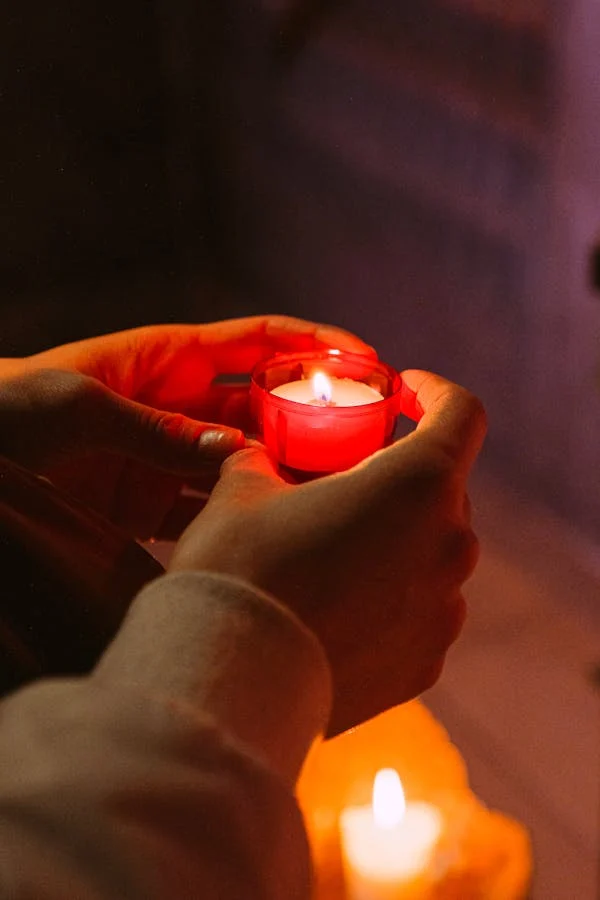Who are you so that we may give an answer to those who sent us? What do you say about yourself? He said, “I am a voice crying out in the desert, ‘Make straight the way of the Lord,’ just as the prophet Isaiah said. John 1:22-23
In a world often filled with challenges and uncertainty akin to the wilderness of our lives, including anxieties, grief, depression, stress and resentment, the ability to inspire Hopeand speak life remains one of the most profound gifts we can offer.
In Today’s readings, you will encounter John the Baptist, who is being questioned about his identity from Jerusalem by the priests and Levites who sent the Jews. They ask him who he is, and he replies that he is a voice crying out in the desert, make straight the way of the lord. The role of John continues to unfold in the gospel of John as the primary witness of Jesus Christ. In retrospect, this reading is an opportunity to ponder through and identify your role as a person of Faith called by God to impact the lives of others through your gifts and talents.

And so you wonder, in a world full of different challenges and uncertainties, what does it truly mean to inspire Hope? Is it merely by giving out material things? Offering words of comfort? Being empathetic or offering a listening ear. Just like a drop in a water pond that ripples outward, you will be surprised how small gestures come a long way as an oasis in the desert of people’s lives. How do you become a beacon of light?
- Check the Status of your Jar
In a society where you are conditioned to focus externally most of the time, you can get overwhelmed by the needs and demands of others at your own expense. Checking the status of your jar means self-introspection on your inner resources, such as your personal qualities, strengths, weaknesses, ability to navigate challenges, decision-making, resilience, adaptability, and so on. Moreover, it means understanding who I am, where my source is, and what my being is rooted in.

Secondly, ask yourself how far your jar is in terms of being replenished. What do you do to keep your jar full, and what self-care practices do you do? How do you keep your spiritual, mental and emotional well-being nourished? Remember, you cannot pour from an empty Jar. As you ponder this, jot down the areas you must work on.
- Lead by Example
Allow yourself to be a demonstration of Hope amid the challenges you are going through. It is easier said than done when you talk about Hope to someone. You model and lead by example by practising resilience, Proactiveness, and remaining hopeful during difficult situations. People pick on the nonverbal and actions as opposed to what is being said.

- Use your Gift
Every person has something they naturally excel at or an inherent talent, skill, or trait that sets them apart. When these are used intentionally, they become powerful tools for impacting the lives of others. For instance, as a writer, you can write stories that inspire Hope and resilience. The question to ponder is, what do I excel at? How can I tailor my approach or skill to solve a problem or impact someone in need?
- Ignite the spark in others.
Listening to someone without judging them is among the greatest gifts you can offer someone. You may often find yourself constantly interrupting someone to share your opinion or unsolicited advice based on how you view the world. But rarely do you give a listening ear. Moving forward, challenge yourself to listen to others and see how this will change the dynamics of your relationships with others.

In addition, they should express genuine confidence in their abilities, even when others doubt themselves. Say words like, ‘You can do it’ to support them and, ‘What one small step can you take towards your big goal?’ to challenge them.
Conclusion
Inspiring Hope in others is one of the most profound acts of kindness and leadership. Hope is contagious. When you are hopeful and ignite Hope in others, it creates a ripple effect, empowering each person to face challenges with resilience.
You can become a beacon of light in your journey by demonstrating self-care, resourcefulness, leadership by example, and deep listening.
Questions to Ponder
Who am I?
Who is my source?
What is my area of Gifting?
What Problem can I solve with my gift?

Prayer
Dear God, Thank you for life and your grace. Please open my eyes to identify my area of Gifting. Please give me the courage to use my gift to solve a problem and live in alignment with my destiny. Amen










